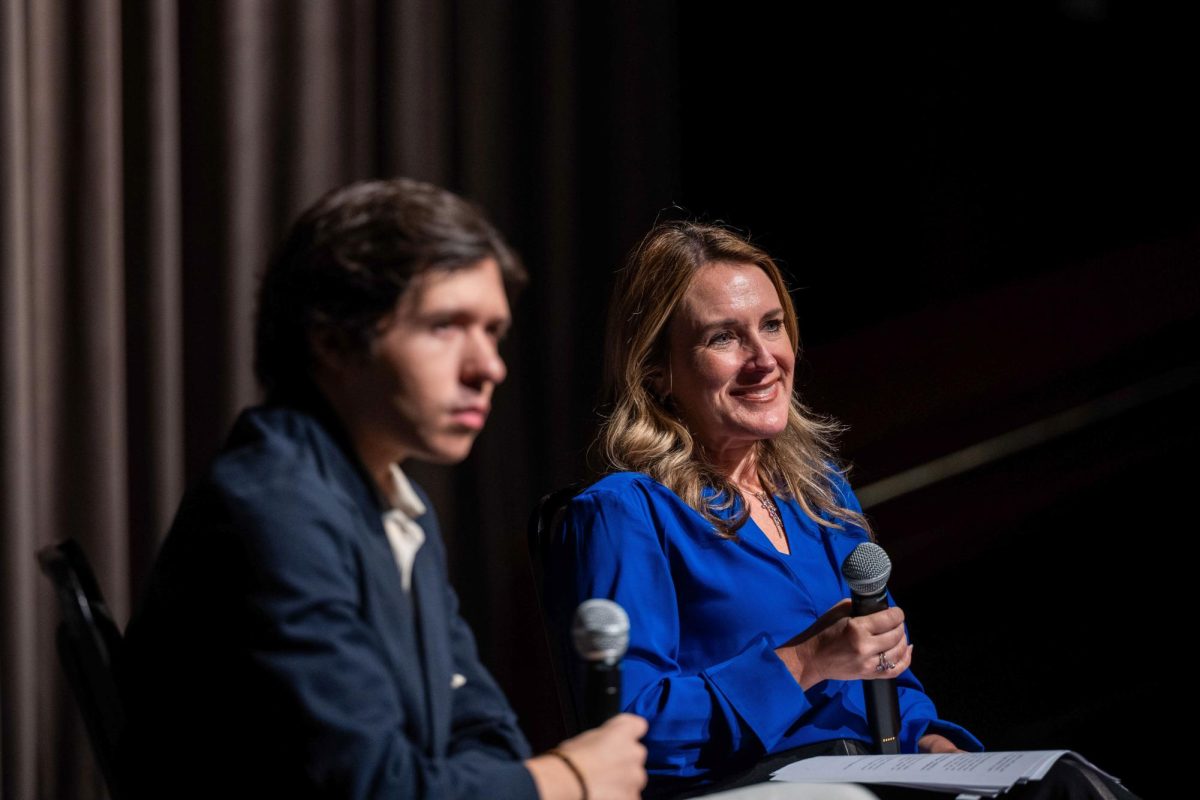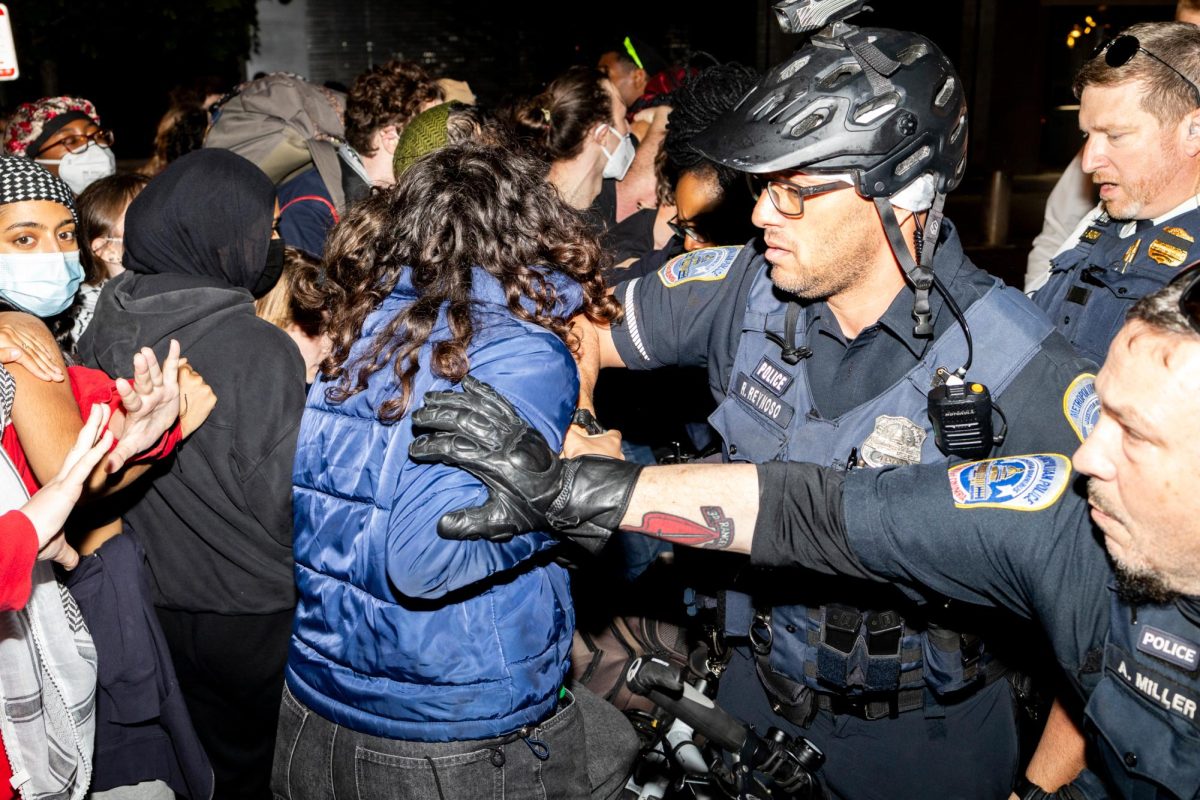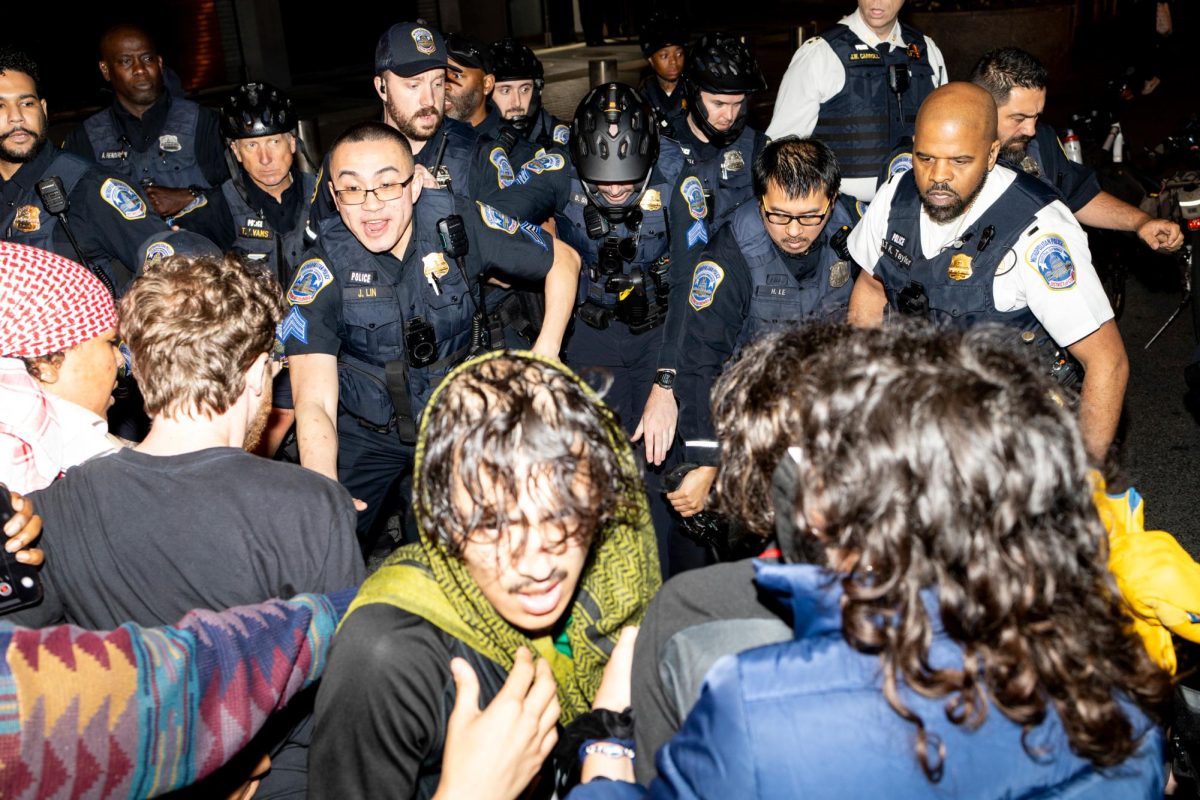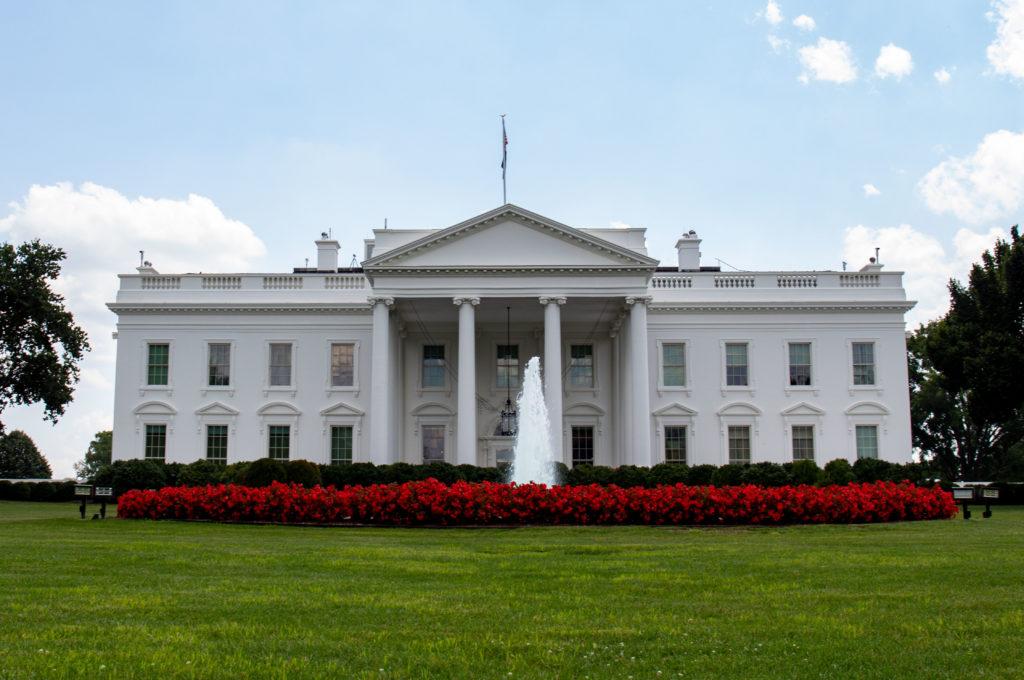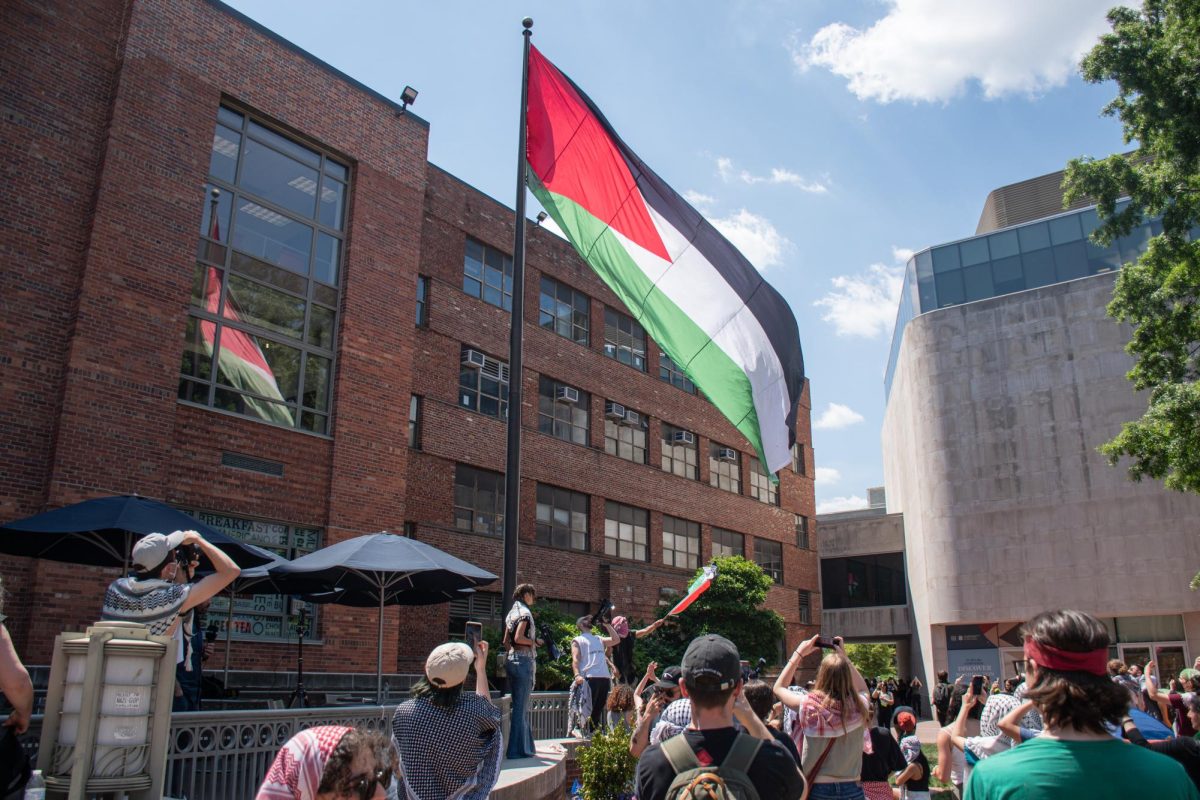The Deputy Secretary of the Bureau of East Asian and Pacific Affairs discussed the state of U.S. diplomacy in the Indo-Pacific at the Dorothy Betts Marvin Theatre on Tuesday.
Camille Dawson, who briefly served as a public diplomacy fellow and a faculty advisor at GW before becoming Deputy Secretary in 2021, discussed the U.S.’ goals to strengthen its economic and security interests in the Indo-Pacific — which the White House identifies as the region from the U.S.’ Pacific coastline to the Indian Ocean — due to the growing presence of China. The town hall was hosted by the Student Association and moderated by SA Sen. Jonesy Strell (CCAS-U).
Dawson said she became interested in foreign service as an undergraduate student at the University of Texas at Austin, where she graduated from in 1995, before joining the Japanese Exchange and Teaching Program to teach English to Japanese middle and high school students. After graduating with her master’s degree from Columbia University in 1999, Dawson said she entered the foreign service at the same time as her friend and colleague, GW organizational sciences and communication professor Michael Newbill, who attended Tuesday’s event.
Dawson said the Indo-Pacific region is “essential” to American prosperity and security as the area is home to half the world’s population, two-thirds of the world’s GDP growth and seven of the largest militaries in the world. Dawson said the primary goal of the U.S.’ Indo-Pacific strategy is to build the region’s “collective capacity” to prepare for future challenges concerning transnational issues like health, climate and counternarcotics.
“We are committed to ensuring that the Indo-Pacific region remains free and open and continues to become evermore prosperous and secure and integrated into the global economy,” Dawson said. “As the U.S. National Security Strategy lays out, we believe we’re in a really decisive decade for America and for the world, where the terms of geopolitical competition between major powers will be set, and the window of opportunity to deal with shared challenges will continue to narrow.”
The White House aims to compete against China’s economic “coercion” and “aggression” in the Indo-Pacific region to ensure the balance of influence is “maximally favorable” to the U.S. and its allies, according to its Indo-Pacifc strategy released in 2022. China imposed trade blocks on Australia in 2020 after Australia called for an inquiry into the origins of COVID-19, and the U.S. has increased defense cooperation with Australia and other Pacific countries recently in preparation for a Chinese invasion of Taiwan, which China considers its own territory.
Dawson said part of the U.S. strategy in the Indo-Pacific includes separate efforts to invest, align and compete with China economically and politically. She said the U.S. is building up domestic supply chain infrastructure to rely less on China’s manufacturing while uniting with allies to counter the strength of China in the region.
“There are a number of areas in which the United States and China undeniably are in a competitive frame,” Dawson said. “There are also areas where the United States and China have to work together cooperatively to address issues that have global ramification.”
Dawson said the ongoing conflicts in the Middle East and Ukraine may have consequences for U.S. diplomacy around the world, including in the Indo-Pacific region. She said countries with large Muslim populations are concerned about the U.S.’ support for Israel in its war with Hamas. She also said despite the conflict between Russia and Ukraine being removed from the Indo-Pacific region, there is still a strong amount of engagement and support for Ukraine in Asia because the two regions are “deeply intertwined.”
“Part of a diplomatic relationship and diplomatic conversation is to be able to talk about both the areas in which countries agree, but also the areas where we disagree,” Dawson said.
Dawson said entering the U.S. Foreign Service involves a lot of personal change, including moving often between countries and continuously shifting focus on assignments. She said it’s not an ideal career for people who want to stick to one path or one location.
“I think that continual curiosity and desire to learn is really important,” Dawson said. “At the same time, it’s great for people that like to try new things all the time.”


